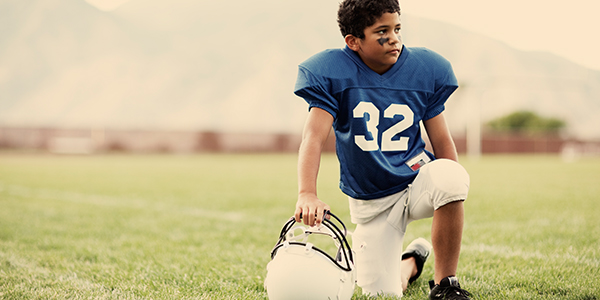A head injury is a common childhood experience that can happen at any age – whether it’s the newly mobile baby rolling off the bed, the elementary school kid falling off the jungle gym, or the teenage athlete colliding with an opposing team member.
If your child was healthy before the head injury, doesn’t lose consciousness, doesn’t have cuts on the head or face, and acts normally afterward, it is probably just a bump on the head. In this situation, the most important thing you can do is carefully observe your child, and should you have concerns, don’t hesitate to follow your instincts and call your doctor.










